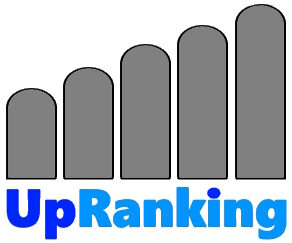SEO 101: Key Terms to Help Improve your Local Service Business Website Marketing
If you’re just getting started with SEO for your local service business website, there are some key concepts and terms to learn. These will help you improve your search engine rankings and visibility. We’ll expand on these topics in future articles.
What are Keyword Search Terms?
Keyword search terms are the actual words and phrases users type into search engines. Identifying high-value keywords your customers use and optimizing for those terms is crucial for SEO. As a local business, target keywords that accurately reflect your services. Research helps uncover the best keywords to focus on. Use tools to find new keyword opportunities.
Keyword research is crucial for identifying terms customers search for.
What is Local SEO?
Local SEO means optimizing your online presence for local search visibility. Tactics include using keywords with your city/region, getting listed on sites like Google My Business, getting local reviews and citations, and more. Local SEO helps you appear when community members search for your services.
Local SEO guide for optimizing online presence.
What is Organic Search Traffic?
Organic search traffic refers to visits from unpaid search engine results like Google, Bing and Yahoo. It’s the natural traffic you get from ranking well for relevant keywords. Improving on-page and off-page SEO drives more organic traffic.
Learn about driving organic search traffic.
What is On-Page SEO?
On-page SEO means optimizations made on individual web pages to improve rankings. This includes adding keywords to titles, headers, content, alt text, metadata, etc. On-page SEO shows relevance for keyword terms. Ensure your site structure is easy to navigate and pages target specific keywords.
On-page SEO best practices to improve rankings.
Content Marketing
Content marketing involves creating and distributing valuable, relevant content to engage your audience. Produce high-quality content addressing their needs and pain points. Use various formats like blog posts, videos, infographics, and eBooks to get their attention and encourage customer action.
Content marketing strategies to attract your audience.
What are Meta Titles?
The meta title is the HTML title tag search engines show for your page. It should accurately describe the content using keywords customers search for. Meta titles can be up to 60 characters. They provide the first impression of your business – make them descriptive, enticing, and unique.
Meta title optimization guide for higher CTR.
What are Meta Descriptions?
The meta description is the short text under the title in results. It previews page content to entice clicks. Meta descriptions can be up to 160 characters. Unique, keyword-optimized descriptions for each page can improve clicks. They should match the page content.
Meta description tips for optimized snippets.
What is Technical SEO?
Technical SEO refers to behind-the-scenes work to ensure search engine accessibility. This includes having a secure SSL certificate, optimizing media, and improving page speed.
Technical SEO audit checklist to improve accessibility.
What is Off-Page SEO?
Off-page SEO refers to actions outside your site to improve rankings. A key tactic is link-building, or acquiring high-quality backlinks from reputable sites. Other off-page factors like shares, reviews and citations also help.
Off-page SEO techniques like link-building.
What are Backlinks?
Backlinks are incoming links to your site from other websites. High-quality backlinks from trusted sites demonstrate authority and relevance. Link-building to earn backlinks is key for off-page SEO.
What are Local Citations?
Local citations are business name, address, and phone mentions on directories, platforms, and other sites. Accurate, consistent citations establish trust and authority, improving local rankings. NAP (see below) consistency across citations is crucial.
Local citation sources to build trust.
What is NAP?
NAP stands for Name, Address, and Phone number. It refers to the key contact information for a local business. NAP consistency is important for local SEO because:
- Search engines use NAP data to match local listings and citations to a business’s website. Consistent NAP helps search engines make this connection accurately.
- Inconsistent NAP across directories, citations, and other listings can result in duplicate or conflicting business listings that divide a business’s local signals.
- Accurate, consistent NAP helps build trusted citation signals that influence local ranking factors.
The Definitive Guide to NAP Consistency for Local SEO – Moz
What is a GMB?
Google My Business is Google’s free tool for managing your online presence. If you set up your GMB correctly you will show up in, what is often called “the maps section” above the normal google search results when local people search for your services. You should claim your Local GMB listing and help it to rank by adding accurate info, photos, and encouraging reviews.
A guide to setting up your GMB
Our next blog post outlines some of the best Online SEO Guides



